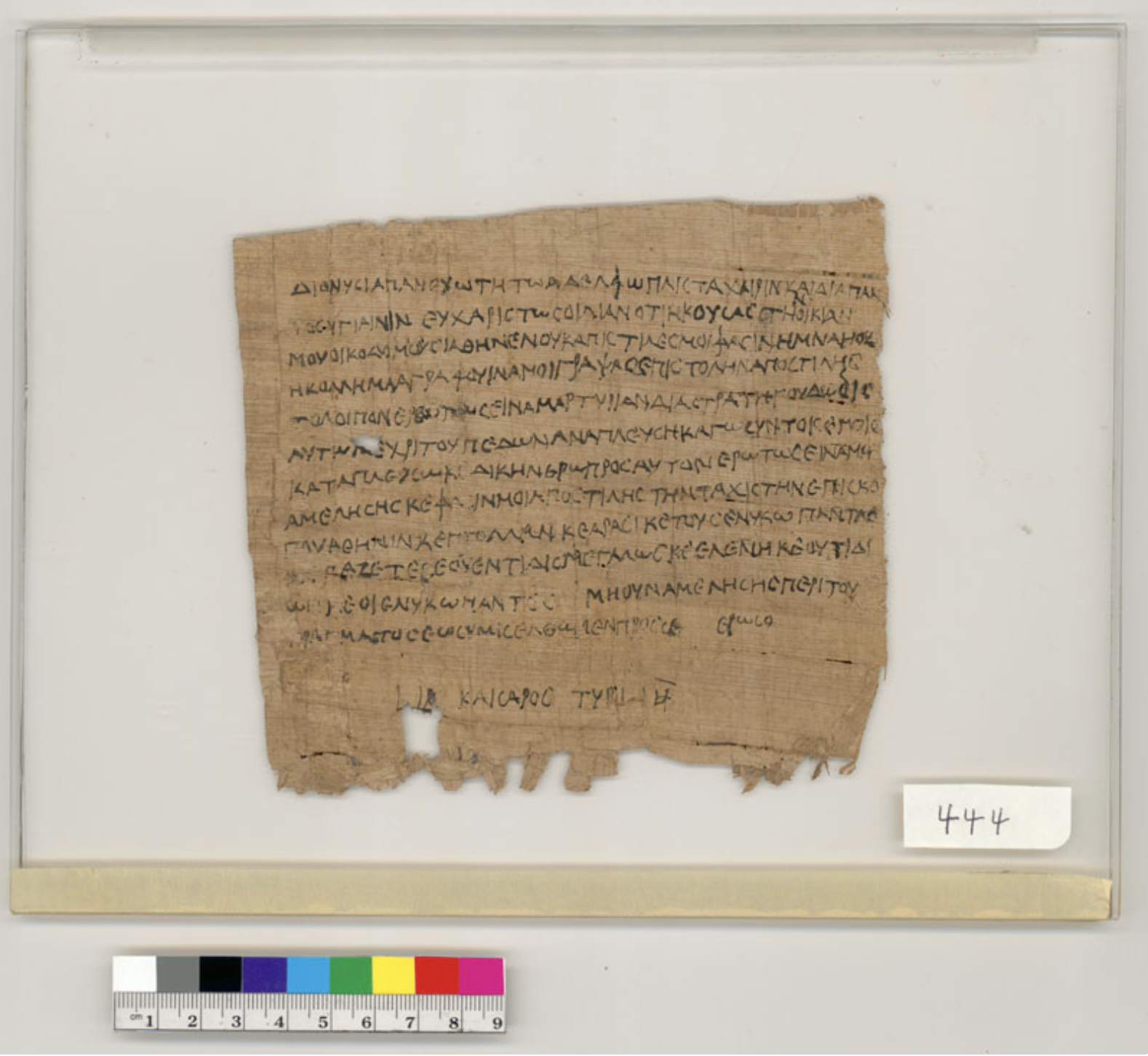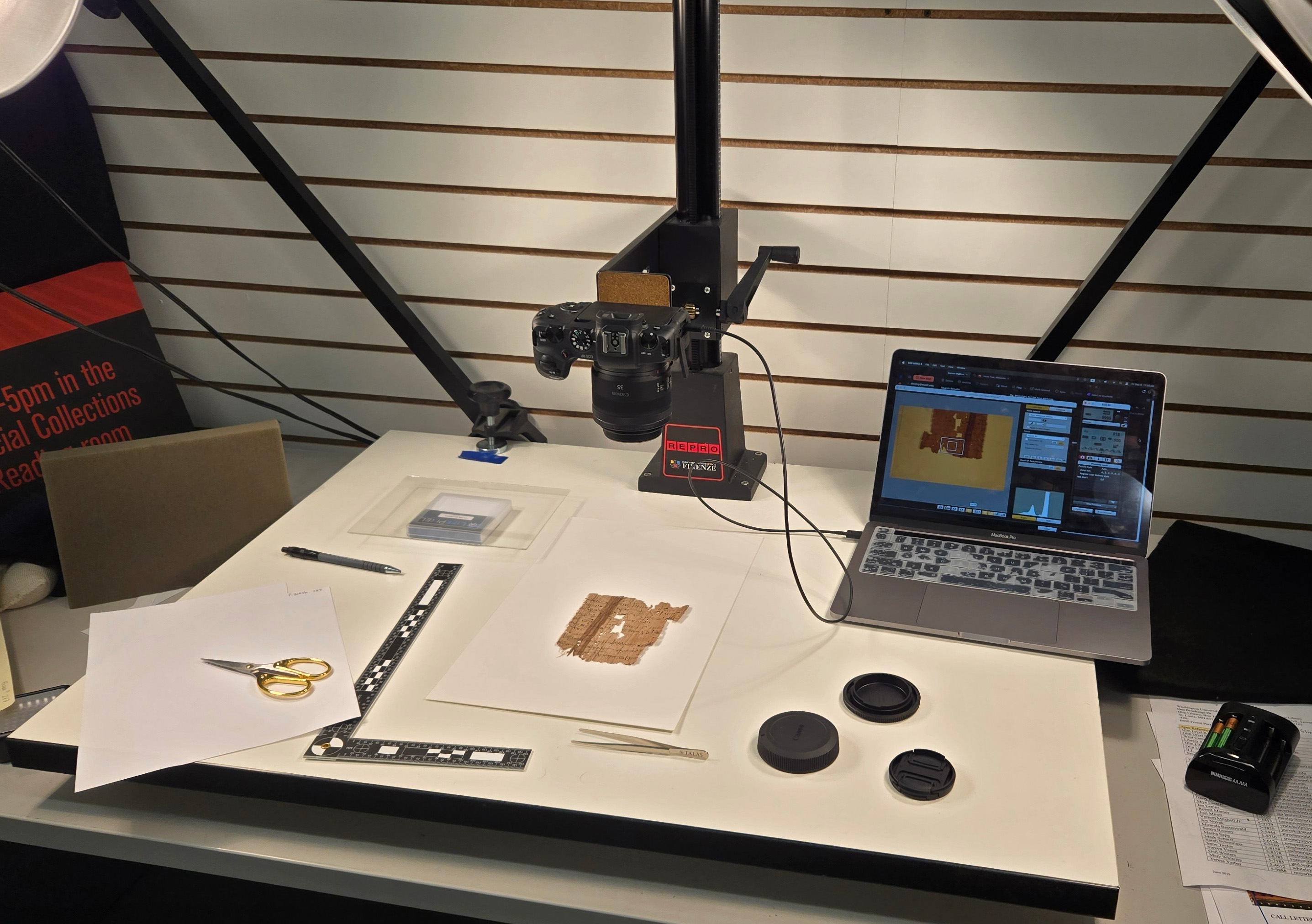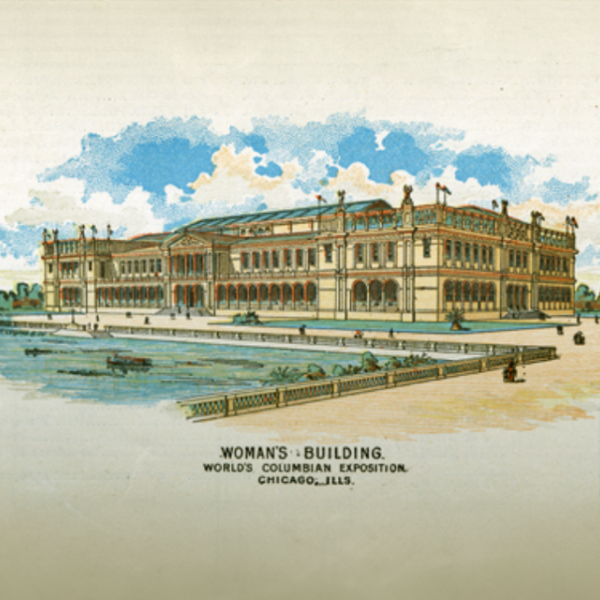William Sieving, a graduate student in the John and Penelope Biggs Department of Classics, is a classicist and papyrologist who specializes in Graeco-Roman and Late Antique documents.
“You did not send me a word nor a thought nor even a blank sheet of papyrus. So write me a letter and send it.” Thus Dionysia chided her brother Panechotes in a letter over 2,000 years old. She thanks him for her recently repaired home and mentions a suit she is taking part in, concluding by giving regards to the many members of their respective households: Athenis, Ptolla, Harasis, Ventidius, Helene and Outidion, names that would otherwise be lost to time. The uneven handwriting and the phonetic misspellings paint a vivid picture of Dionysia, a woman living in Roman Egypt, holding a reed pen (kalamos) and scratching out a letter to her beloved brother on a small sheet of papyrus, an ancient kind of paper. The daily happenings of her life would have seemed mundane to her but to us they appear strange and wonderful.

Dionysia’s letter is one of over 400 Ancient Greek documents from Egypt housed in the Special Collections at Olin Library. Spanning over a thousand years (from the third century BCE to the ninth century CE), these documents allow us to ask a variety of questions about life in antiquity: How did people file suit in Roman Egypt? What were their homes like? How many women could read and write in Dionysia’s time and how does this compare to other time periods?
The documents at Olin Library mainly originate from the city of Oxyrhynchus (al-Bahnasa) in central Egypt. They were received by the university’s classics department in 1922 in return for a $200 contribution to the site’s excavation. After arriving at the university, the documents were originally kept in the classics department but later were moved to Special Collections for their better preservation and eventual publication. The efforts of Verne B. Schuman and his student Carroll A. Nelson (Indiana University) produced the first volume of documents in 1980. The second volume, including Dionysia’s letter, appeared a decade later through the efforts of Zola Packman (WashU classics faculty) and Klaus Maresch (Cologne). The Summer Institute in Papyrology held at WashU in 2018 by the American Society of Papyrologists led to the publication of a number of texts by participants. Through these two volumes and journal articles, roughly a quarter of the documents in the collection have been made accessible to a wider community of scholars.

Recently, Roger Bagnall, honorary professor of classics, has spearheaded efforts to publish the remainder of the documents. After taking an initial survey of the collection, Bagnall enlisted the help of Alexander Free from the Ludwigs-Maximilians University of Munich and myself to clean, preserve and edit some of the remaining documents with the intention of producing a third volume. This includes photography, rehousing the artifacts in glass for long-term preservation and editing over 30 papyri. The documents selected for publication include an order for arrest sent to the chief of police (archephodos), a letter mentioning an illness and an account of payments to young women. These documents preserve the lives and voices of individuals absent in historical accounts, and through their publication we hope to engender and perhaps answer similar questions to those that Dionysia’s letter inspires, bringing into clearer focus the ordinary from ancient times.




